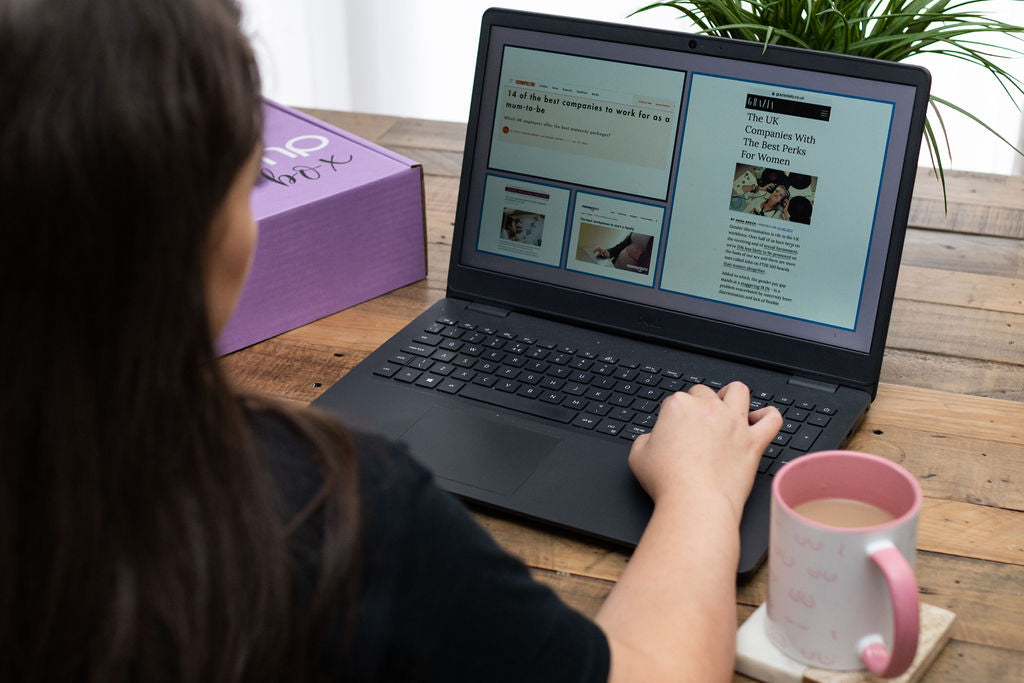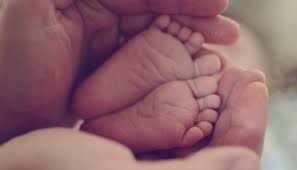Stephania's birth experience

Twentieth of March two thousand and eighteen: the worst and the best day of my life.
The best because at 7.47am my daughter was born.
The worst because at 7.48am, she stopped breathing.
For 6 minutes.
6 whole minutes.
Before that, I had no idea what ‘long-lasting’ meant.
I thought it meant waiting for a night bus on a cold day in London. Or enduring an hour-long mass when, as a child, my parents forced me to go to church.
As I was lying behind the green curtain in the emergency C-section theatre at the Whittington Hospital and I watched the cardiac arrest team storm into the room, time got stuck.
Until that day, my pregnancy had been uneventful. Except for the tiredness and sickness of the first trimester, I felt good most of the time. Plus, all the scary morphological scans indicated everything was normal with my child.
I was confident my birth was going to be something out of a hippie doula video — the baby coming out with less effort than a little trapped fart after eating brussel sprouts or cauliflower.
So when I wrote my birth plan, I decided to have my child in the birth pool. No major drugs. I downloaded a few hypnobirthing guided meditations and listened to them in the bath, visualising the moment my baby would come out in the water and I would have him or her (I didn’t find out the gender beforehand) skin-to-skin on my chest.
Most pregnancies, however, rarely go smoothly until the end. When I went to see the midwife for my 39 weeks check up, she noticed my bump was measuring smaller than before.
Two days later, after a scan, I found out that my amniotic liquid was slightly reduced. The doctors told me I had to be induced immediately.
At around 4pm, the midwife inserted the tiny tampon that was going to stimulate my uterus to start contracting.
And so it started, with a mild pain similar to my first day of period.
I was calm, WhatsApping my family and friends, asking them to distract me with any gossip — the over-the-top Brazilian wedding of the week, the next blogger to get divorced, the last stupid thing that Morrissey said in an interview — anything that would take my mind off the pain.
As the night rolled on, the contractions became more and more painful. At 2am, I was totally in control, practicing the hypnobirthing exercises: breath in for 4 seconds, breath out for 8 seconds.
I put on some of my favourite music and started dancing. And as a good track always helped me run that extra 5k, it helped me to endure labour.
But then the contractions were becoming more and more frequent. They were beyond the 3 per 10 minutes mark. There wasn’t much time to rest before another one started.
At 3.30am, I was lying on the swiss ball, groaning and swearing like a motherfucker.
Michael called the midwife and I asked for some pain relief. She came in with a can of gas and air.
Inhaling that thing took me back to university, when I used to snort a drug called Lança-Perfume — an ambient deodorant very popular in Brazil, that has been applied as anesthetic a long time ago and became famous for supercharging people during carnival. Now that I was about to be a mother, was this the last time I was going to be high in my life?
And then — boom — my water broke. Tears rolled down my cheeks when I saw my pair of Adidas leggings completely soaked in amniotic liquid. My baby! My baby was coming!
The nurse came in with the monitor to check baby’s heartbeat.
Silence.
Every time I had a contraction, the baby’s heart rate was going down. She called the senior midwife, who saw it and immediately told us:
“You two are going down. To the labour ward.”
Screaming in pain, I jumped on a wheelchair holding my can of Gas and Air like an alcoholic holds a can of beer. I was so high I didn’t register how alarmed the midwives were.
Down at the labour ward, they gave me an injection to slow down the contractions. And it worked. The baby’s heart rate went back to normal. But the midwife told me I was only 2cm dilated, after more than 10 hours of labour.
Fuck this shit, I needed an epidural.
The anesthetic doctor came in the room. I checked his credentials. His name was Tom Petty. I riffed a few verses of American Girl, but thank God I was sober enough to remember I have a terrible voice.
The epidural was starting to work, but I could still feel the contractions getting stronger and stronger.
And as I was preparing to settle down and finally stop feeling pain after 14 hours of induced labour, something happened. Something that I’ll never forget until the very last day of my life. A moment that will haunt me forever, like one of those banners that keeps popping up after you search for electronics or cosmetics online.
I wish I could describe what happened more thoroughly. The truth is, I can’t remember anything more than the way I was feeling: scared, exhausted and constantly asking myself: “Is this real?”
Some flashbacks, however, still come back in my nightmares:
A red button.
A siren.
My baby’s heart rate dropping on the bedside monitor.
A nurse beside my bed explaining the risks of an emergency C-Section and asking me to sign a piece of paper.
The doctor with a strong Asian accent dabbing his fingers on my pelvis and asking if I could feel his touch.
Michael by my side wearing surgical scrubs.
In what felt like less than 10 minutes, my baby was out.
I didn’t hear her crying.
I’ll never forgive the fact that I don’t have the photo where I hold my baby with tears in my eyes and Michael looks at me like he’s never been so in love. That photo that would have a thousand likes on my social media profile didn’t happen.
The big surprise “is it a boy or a girl?” was replaced by “is it dead or alive?
A group of 4 or 5 doctors stormed into the room and Michael went away to try to find out what was happening.
I was left screaming on the surgical table as if I was a character in a Brazilian soap opera: “Will my baby be OK? Can someone tell me what’s going on? Whhhhheeeere’s my baby?”
And unlike Brazilian nurses, who’d probably hold my hand and tell me to have faith in God and that He would take care of everything, one Eastern-European woman approached me and said: We don’t know if your baby is OK yet. We’re doing everything we can.
The British health system is definitely not for beginners.
I was moved to a recovery room while Michael went to the neonatal CTI to find out what was going on.
And while I sat there, with no baby in my hands, that was when I became a mother.
When I realized that our little ones choose their own paths into this world.
Accepting that they’ll come and fuck with our birth plan, life plan, holiday plan — that’s motherhood. More than holding babies skin-to-skin or enduring the pain of breastfeeding, there’s nothing more maternal than letting go. And abandoning the urge to control every step of our children.
No one tells you this in books about child psychology or how the French, the Danish or the Aliens raise their kids.
So as I waited for Michael to come back with some news, I asked the midwife for some morphine. I said a little prayer and handed my daughter’s life over to the universe. I slept for 4 hours straight, until Michael came back saying she was finally able to breath without the help of machines.



Leave a comment